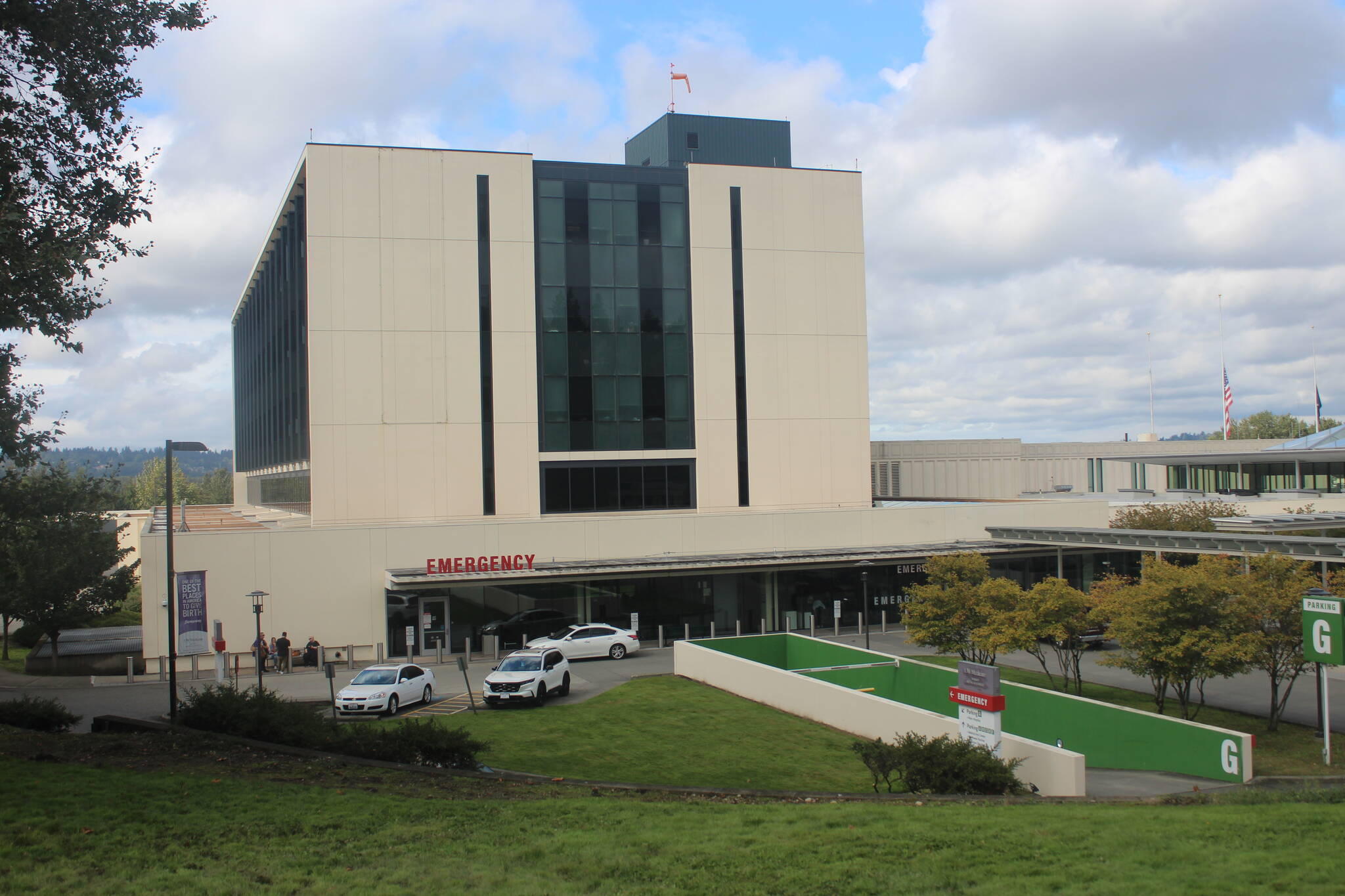In the wake of significant financial instabilities and uncertainties, Valley Medical Center is shuttering multiple healthcare units and clinics throughout south King County, beginning with Renton Landing Urgent Care.
On Monday, May 12, Valley Medical announced that loss of funding from the state and federal government, along with private sector reimbursement instability, will lead to the closing of two inpatient units, five clinics and the consolidation of two clinics. Valley Medical, which serves over 600,000 residents, has a growing year-to-date operating loss of -$25 million.
This announcement follows the layoff of 101 non-union employees at Valley Medical Center in Renton, which happened in late March. Those layoffs were due to an abrupt end to the hospital’s Medicaid — or Apple Health — reimbursements.
“We continue to be faced with some very difficult challenges and decisions,” said the May 12 statement from Valley Medical. “We must further scale back operations to match our shifting financial realities. This requires a large-scale restructure of our workforce, as well as the consolidation and closing of some clinics and departments. All changes will roll out over the next two months.”
Northwest Pavilion Inpatient and Inpatient Pediatrics, which are located at the Medical Center’s Renton location off of Talbot Road, are the two units that will be closed on Friday, June 27. According to Valley Medical’s website, it is the only Inpatient Pediatrics Unit located between Seattle and Tacoma.
Three of the clinics that will close on June 27 are located on the same campus: Maternal Fetal Medicine Clinic, Occupational Health Services and the Pediatric Neurology & Pediatric Sleep Medicine clinic. The Renton Landing Urgent Care has already closed and the Kent Primary Care clinic will be shut down on June 27.
The Medication Management clinic in Covington will be partially consolidated to the Renton location, while the Valley Women’s Healthcare clinic in Covington will be partially consolidated to Renton and Auburn locations.
“These are very tough decisions that impact people’s lives, both our employees and the community we care for, and that is not something we take lightly. While incredibly difficult, these changes are necessary for Valley’s future stability,” said the Valley Medical statement, which further explained that extensive leadership (13% reduction) and non-clinical (8% reduction) cost-saving measures were taken before turning to restructuring of the clinical workforce.
Valley Medical is a public district hospital and 64% of Valley’s reimbursement for care provided is from federal or state funding sources, which Valley Medical communications director Kristin Bidwell told the Reporter in March means that any reductions disproportionately impact Valley Medical.
In fall 2024, the state of Washington applied to continue the Medicaid Directed Pay Program (DPP) — an option to “help states close gaps in payment between Medicaid and other payers” — through the federal government for the 2025 calendar year.
In February 2025, the Washington State Hospital Association (WSHA) reported that the program had not been renewed by Jan. 20, 2025, and that the current administration has not approved the program for 2025.
“Significant thought and consideration were given to areas of closure and consolidation to ensure the presence of other local resources,” the statement continued. “Patients who are seen at impacted departments and clinics will be referred to other local, community-based providers.”


